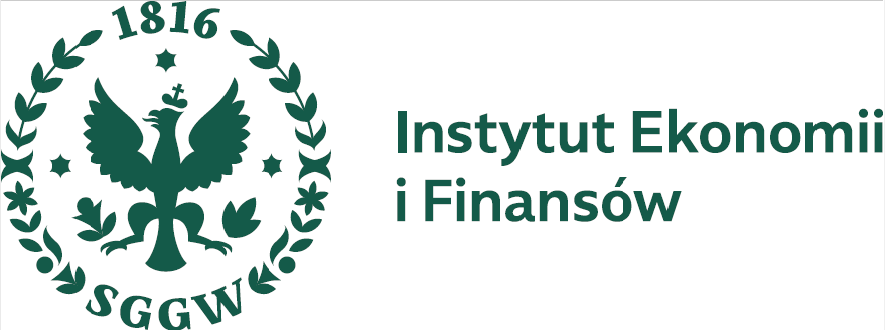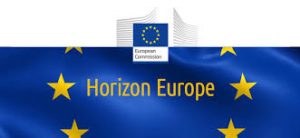
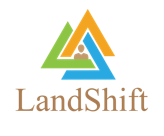
Project under Horizon Europe programme „Community-Led Creation of Living Spaces in Shifting Landscapes for Climate-Resilient Land Use Management and Supporting the New European Bauhaus” with the acronym LANDSHIFT.
LandShift is a groundbreaking initiative aimed at addressing the urgent challenges of climate change, biodiversity loss, and unsustainable land management practices. With a focus on the EU’s land-use sector, LandShift seeks to develop innovative solutions that not only mitigate biogenic emissions but also enhance ecosystem resilience and promote sustainable resource management. LandShift aims to support the EU’s ambitious climate goals by maximizing net removals from LULUCF, while minimizing biogenic emissions from agriculture. By strategically utilizing Living Earths, integrating FAO LCCS with optimized EO data, and Data Cubes as centralized data hubs, the project aims to implement tailored strategies for local and regional contexts, fostering stakeholder engagement and collaboration. Central to LandShift’s approach is the integration of NBS aligned with the principles of the New European Bauhaus. These solutions leverage natural processes and ecosystems to enhance carbon sequestration, improve biodiversity, and strengthen ecosystem services. By harnessing the power of NBS, LandShift aims to create synergies between climate mitigation, biodiversity conservation, and sustainable land management. Furthermore, LandShift recognizes the importance of data-driven decision-making and monitoring to track progress and inform policy development. The project will establish robust MRV systems to ensure the effectiveness of implemented strategies and measure their impact on biogenic emissions, biodiversity, and ecosystem health. In addition to technical solutions, LandShift places a strong emphasis on policy influence and capacity building. Through targeted outreach and engagement activities, the project aims to raise awareness, build capacity, and foster collaboration among stakeholders at all levels. By empowering policymakers, land managers, and local communities, LandShift seeks to create an enabling environment for sustainable land use sector and management practices.
Grant agreement ID: 101182007
Start date: 1 November 2024
End date: 31 October 2027
Primcipal Investigatior and Project Manager at SGGW: prof. Mariusz Maciejczak
Webpage: https://cordis.europa.eu/project/id/101182007

The implications of the COVID-19 crisis for the spatial integration of agri-food markets and the functioning of food supply chains in the world, with a particular focus on Poland
Project duration: 01.01.2022-31.12.2024, 36 months
Financing: NCN OPUS21
Aplicant: Szkoła Główna Gospodarstwa Wiejskiego w Warszawie
Principal investigator: prof. dr hab. Agata Malak-Rawlikowska, prof. SGGW, (Instytut Ekonomii i Finansów
Key researchers involved: dr hab. Mariusz Hamulczuk (Instytut Ekonomii i Finansów, SGGW), dr hab. Karolina Pawlak, prof. UPP. (Wydział Ekonomiczny, Uniwersytet Przyrodniczy w Poznaniu)
The COVID-19 outbreak, caused by the novel coronavirus SARS-CoV-2, has occurred in 2020 and had a character of a global demand-supply shock, causing both global and local economic consequences. Restrictions on the flows of goods, services and production inputs introduced as a result of a pandemic, leading to a weakening of the spatial integration of agri-food markets, can have serious repercussions for the food security of many regions. Therefore, the scientific goal of the project is to assess the economic effects of the COVID-19 crisis on the spatial integration of agri-food markets and the functioning of food supply chains in the world, with a particular focus on Poland. The project will carry out ex post analyses aimed at examining the past processes of spatial integration on agri-food markets in the world before and under the COVID-19 pandemic, as well as their economic and social consequences for the functioning of supply chains and food security on a local, regional and global scale. In the next stage of research ex ante analysis of selected potential scenarios for the development of the COVID-19 crisis and its consequences for market participants, supply chains and food security in the world and in Poland will be performed.

![]()
e-AgriMBA: Electronic Pan-European Learning System for Sustainable Agribusiness MBA Education
Implementation period: 2022-2024, 36 miesięcy
Source of financing: ERASMUS+ 2022-1-PL01-KA220-HED-000086080 Cooperation Partnerships in Higher Education
Coordinator: Szkoła Główna Gospodarstwa Wiejskiego w Warszawie (dr hab. Agata Malak-Rawlikowska, prof. SGGW)
Partners: Wageningen University (the Netherlands), Czech University of Life Sciences (Czech Republic), Slovak Agricultural university in Nitra (Slovakia), University of Zagreb (Croatia) University of Debrecen (Hungary), Technical University of Moldova (Moldova).
Project description
The e-AgriMBA project will create an electronic pan-European learning system for sustainable MBA education in agribusiness. It will also expand the course portfolio of existing MBA programs by creating online learning and teaching tools. The e-AgriMBA project will be implemented by six universities from the AgriMBA network, which has been creating, monitoring and accrediting MBA programs in the field of agribusiness and trade since 1990. The project will benefit all members of the network and stakeholders outside the network, including students with fewer opportunities. The project will also extend the AgriMBA network beyond Europe by establishing a new MBA program at the Technical University of Moldova. The online tools created as part of the project will support the development of digital and language competences and promote the sustainable transformation of higher education towards environmentally friendly education.
![]()

Learning by experiencing Escape Rooms: Financial Literacy for Adults
Implementation period: 2022-2024
Funding source: ERASMUS+ KA220-ADU Cooperation partnerships in adult education
Consortium Leader: Warsaw University of Life Sciences (coordinator: Katarzyna Czech, PhD)
Partners: Dimitra Education & Consulting SA., Finance & Banking Associazione per lo Sviluppo Organizzativo e delle Risorse Umane, Fundacio Privada Institute D’Estudis Financers, Eurodimensions, Stiftelsen Kursverksamh Eten Vid Uauniversitet, Virtual Campus
Project’s aim and description
The FLER project aims to enhance financial literacy among adults, especially those living in rural areas, by improving their ability to make sound financial decisions in everyday life and/or in businesses. This project will equip adults with an attractive and facilitating learning experience digital method, i.e., Virtual Escape Rooms. Scenario-Based Learning courses will provide the project beneficiaries with realistic context and emotional engagement, allowing for a more efficient understanding and retention of financial topics. By achieving its goals, the FLER project is expected to enhance sustainable economic development and social welfare by improving the financial well-being of adults with low financial literacy.
Expected Results
- Scenario-Based-Learning Courses based on different real-life scenarios aiming to improve financial competencies, tailored to the learning needs of low financial literate adults
- Virtual Escape Rooms – appealing and motivating Game-Based Learning tool in the financial literacy

![]()
Aligning HE and VET instruments
Implementation period: 2022-2024
Funding source: ERASMUS+ KA220-VET Cooperation partnerships in vocational education and training
Consortium Leader: Warsaw University of Life Sciences (project manager – Mariusz Hamulczuk)
Partners: Dimitra Education & Consulting SA., Stiftelsen Kursverksamh Eten Vid Uauniversitet, Tiber Umbria Comett Education Programme, A & A Emphasys Interactive Solutions Ltd.
Project aims
- To explore ESG and EQAVET European frameworks and their implementation at national levels concerning quality assurance assessment in both VET and HE
- To examine the possible implementation of good practices of the ESG methodology in the EQAVET methodology and vice versa
- To provide recommendations for the potential alignment of the two frameworks
- To deliver a self-assessment tool for HEIs and VET Providers to assist them in investigating their quality assurance processes
Results and outcomes
Through the project, various actors in the HE and VET field get recommendations and a Quick-Scan tool that will help improve quality assurance procedures and systems. As a result, the curricula and the qualifications of university and VET graduates will be adjusted to the labor market requirements.
![]()

DIN-ECO: Creating Digital Innovation Ecosystems in Higher Education Institutions
Project webpage https://din-eco.eu/
The DIN-ECO project, supported by the HEI Initiative programme of the European Institute of Innovation & Technology (EIT), will work towards creating digital innovation ecosystems to make digital innovation more accessible in Europe.
DIN-ECO’s principal objective is to increase the innovation and entrepreneurial capacity of the participating HEIs and enable their integration into European Innovation value chains and ecosystems. More specifically, it wants to:
- Set up or expand structures within HEIs to enhance students’ digital skills and capacities in innovation and entrepreneurship.
- Set up or expand processes within HEIs to facilitate the knowledge and innovation transfer from universities to the market and policymaking centres, and vice versa.
- Foster the collaboration between HEIs and Enterprises for exchanging knowledge and good practices in entrepreneurship and innovation.
- Create mechanisms for innovation-driven research resulting from collaboration with partners coming from the industry.
- Introduce, support and enhance entrepreneurial and innovation studies in HEIs through the re-orientation of existing Curricula and new education programs.
- Support the HEI’s continuous self-assessment of the impact of the implemented
For DIN-ECO’s purposes, the consortium comprises HEIs and professional partners to increase digital innovation and make it more accessible in Europe. These project partners are:
- Ionian University as the lead partner from Greece
- Warsaw University of Life Sciences from Poland
- University of Nis from Serbia
- Aalborg University from Denmark
- Universita degli Studi di Parma from Italy
- Mugla Sitki Kocman University from Turkey
- Found.ation Maker’s Place Private Company from Greece
- A.B. Institute of Entrepreneurship Development LTD from Cyprus
- Fondanzione Fenice Onlus from Italy
Selected activities:
Innovation and Academic Entrepreneurship
On December 21st, as a part of as a part of EIT Digital / DIN-ECO project Institute of Economics and Finance SGGW held online workshop on topic: “Innovation and Academic Entrepreneurship”, dedicated to Researchers and Administrative Staff. During the meeting Participants had the opportunity to learn more about innovation, its different sources and importance to economic growth. A compendium of knowledge relevant to founders of new enterprises oriented to a long-term strategy of building a competitive advantage based on new technologies was provided. The essence and types of academic entrepreneurship were discussed, as well as the most popular forms of spin-off / spin-out business implementation. PhD Students interested in the discussed issues from both the theoretical and business practice side joined our workshop also. The meeting was prepared and led by Dr. Michal Borowy
DIN-ECO Innovation Competition has Officially Started
Young changemakers, inventors, and future pioneers revolutionizing Digital Technologies, Digital Health, and Manufacturing, the DIN-ECO project is calling for you! The DIN-ECO Innovation Competition is a university student hackathon running in Denmark, Greece, Italy, Poland, Serbia, and Turkey until December 2nd, 2022, to identify and support progressive business solutions in the fields of:
- Digital Technologies
- Digital Health
- Manufacturing
The student participants are asked to submit their business ideas as individuals or teams, highlighting the challenges they aim to solve, the target groups and the innovation elements. Problem-solving, critical thinking, creativity and adaptability are fundamental to making an idea stand out.
All submissions will be reviewed, and the best 5 innovative ideas of each participating country will be selected as finalists and advanced to the hackathon’s final round.
Benefits for the winners of the DIN-ECO Innovation Competition:Receive high-quality mentoring and consulting services from experienced professionals.
- Participate in exclusive training sessions focusing on specialized topics of entrepreneurship and innovation.
- Enrich their CVs with a new accomplishment and a valuable learning experience.
- Network with experienced entrepreneurs and other students from top European business schools.
We challenge and inspire young talents! Do not miss out on the opportunity to become part of a pan-European hackathon, harness your entrepreneurial skills, and make an impact.
Learn more about the DIN-ECO Innovation Competition and find the application form on https://din-eco.eu/din-eco-innovation-competition-call/.
Follow us on social media to be the first to know about DIN-ECO’s next steps and updates on the state of digital innovation in Europe:
- Facebook: https://www.facebook.com/DINECOproject
- Instagram: https://www.instagram.com/dinecoproject/
- LinkedIn: https://www.linkedin.com/company/din-eco-project/about/
- Twitter: https://twitter.com/DINECOProject1
- ΤiκΤοκ: https://www.tiktok.com/@dineco_project
“DIN-ECO is supported by HEI Initiative program of the European Institute of Innovation & Technology (EIT) (cohort 2) and is funded by the European Union. The HEI initiative aims to support HEIs with expertise and coaching, access to the EIT innovation ecosystem, the largest in Europe, and funding, enabling them to develop innovation action plans complementing the needs of individual HEIs”
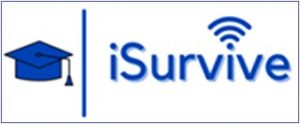
Digital Roadmap for designing online interactive content
Project aim is to develop the competences of HE academics to prepare them to convert their lectures and face to face courses, into effective online ones. The project will provide a system to guide and train academics and lecturers in HE in creating online content which will achieve the expected learning outcomes by boosting student engagement and their motivation to learn. Thus, the project will prevent the students from the risk of “pretend attendance” and stress induced by the lack of personal interactions.
Main results and outcomes: developing a guide that will help designing an online course that will be didactically effective; creating an inventory with appropriate Technology tools for interactive content Creation by using the open online resources; developing and piloting a MOOC training course that academics and lectures can attend in order to learn how to create gamified eLearning courses.
Project website: https://www.isurviveproject.eu/
 Women on the Move
Women on the Move
- Implementation period: 2020-2024
- Funding source: COST Action CA1Project aim is to develop the competences of HE academics to prepare them to convert their lectures and face to face courses, into effective online ones. The project will provide a system to guide and train academics and lecturers in HE in creating online content which will achieve the expected learning outcomes by boosting student engagement and their motivation to learn. Thus, the project will prevent the students from the risk of “pretend attendance” and stress induced by the lack of personal interactions. Main results and outcomes: developing a guide that will help designing an online course that will be didactically effective; creating an inventory with appropriate Technology tools for interactive content Creation by using the open online resources; developing and piloting a MOOC training course that academics and lectures can attend in order to learn how to create gamified eLearning courses.Project website: https://www.isurviveproject.eu/9112
- Consortium Leader: Marie-Jose Ruiz, Université de Picardie Jules Verne, Amiens, France
- SGGW coordinator: dr hab. Nina Drejerska, prof. SGGW
Women on the Move is a transdisciplinary network of European researchers who focus on historic and contemporary female labour mobility spanning six centuries to the present. The objective is to show the presence and economic contribution of female migrants in European history by revealing women as active migrants and builders of Europe – with economic means, belongings, assets and social networks – capable to overcome gendered obstacles.
Website: https://www.womenonthemove.eu/
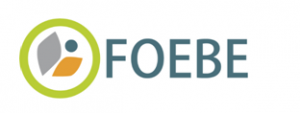 Fostering entrepreneurship for the bioeconomy
Fostering entrepreneurship for the bioeconomy
- Implementation period: 2020-2023
- Funding source: Erasmus+, Strategic partnerships
- Consortium Leader: AgroParisTech
- SGGW coordinator: Institute of Wood Sciences and Furniture SGGW
- Partners: Institute of Economics and Finance, SGGW, University of Bologna, University of Eastern Finland, University of Hohenheim, University of Natural Resources and Life Sciences Vienna, Wageningen University and Research Centre
FOEBE aims at equipping bioeconomy students with sustainable entrepreneurship skills to speed up the European expansion of the bioeconomy sector. The general approach of FOEBE revolves around a blended learning format which combines e-learning and face-to-face sessions, with an emphasis on innovative pedagogical practices. Project activities include e.g. te design of skills portfolios and curricula for entrepreneurship in the bioeconomy, based on an initial survey of bioeconomy industrial players to define the desired qualification and competence profiles.
Website: http://www2.agroparistech.fr/FOEBE-project.html
https://fr.linkedin.com/in/foebe-erasmus-plus-2aa5ab205
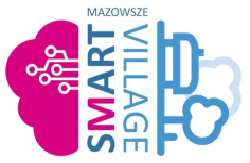
Implementation of the Smart Villages concept in the Mazowieckie Voivodeship
- Implementation period: 2021-2023
- Consortium Leader: Warsaw University of Technology, Faculty of Geodesy and Cartography
- Research work is carried out by employees of the Institute of Economics and Finance, Warsaw University of Life Sciences.
In 2019, the Management Board of the Mazowieckie Voivodeship accepted information on the implementation of the research and implementation project entitled “Implementation of the Smart Villages concept in the Mazowieckie Voivodeship” [link to project www https://www.smartvillageswm.uksw.edu.pl/]. The initiative aims to support the community and development of rural areas of Mazovia, as well as to strengthen traditional and create new networks between stakeholders using modern means of communication, and above all to raise social awareness related to the development of rural areas. Research and scientific analyzes (eg. identification of elements slowing down the development of agriculture, assessment of farming conditions and determination of factors influencing the slowdown in agricultural development) are the basis for achieving the project objectives.
The Institute of Economics and Finance, Warsaw University of Life Sciences coordinates Task 3 on in developing the idea of Smart Villages for Mazovia.
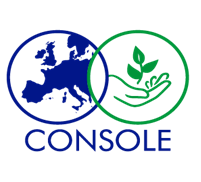
CONtract SOLutions for Effective and lasting delivery of agri-environmental-climate public goods by EU agriculture and forestry /
- Implementation period: 2019-2022
- Source of funding: UE Horison 2020
- Coordinator in Poland: Prof. Edward Majewski
- Main Coordinator: University of Bologna (Italy)
- Researchers representing IEIF SGGW: Agata Malak-Rawlikowska, Edward Majewski, Adam Wąs, Piotr Sulewski, Alina Daniłowska.
The CONSOLE project focuses on promoting the delivery of Agri-Environmental Climate Public Goods (AECPGs) by agriculture and forestry through the development of improving contractual solutions (that is, the relationships between the public administration at different scales and the farmers).
Expected project outcomes:
- A catalogue showcasing existing successful experiences and good practices in AECPGs contracting
- Improved AECPGs contracts solutions suitable to be used as models for future design, including their assessment and the role for different levels of governance (from local to EU)
- A comprehensive guide to the process for the design of AECPGs contracts (including conceptual basis, design variables, determinants, roles, legal and technological aspects
- Documentation, training and supporting materials
- Testing of innovative contract solutions by farmers and other entities;
- Assessment of farmers’ willingness to participate in contracts for the provision of public goods;
- Assessment of the potential effects of contract application in selected regions
- Analysis of legislation in the field of contracting public goods, including recommendations for improvements.
Types of contracts for delivery of Agri-Environmental Climate Public Goods (AECPGs) under consideration:
1) Result based contracts
2) Land tenure initiatives
3) Value Chain Contracts
4) Collective initiatives
Webpage
https://console-project.eu/

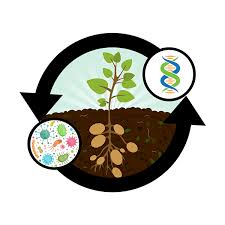
![]()
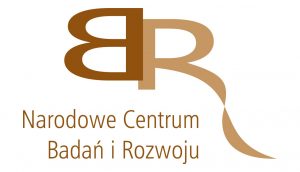
Project: “potatoMETAbiome”
Implementation period: 2019-2022
Source of funding: National Center for Research and Development in the framework of the Era Net SusCrop initiative
Coordinator at SGGW: dr hab. Mariusz Maciejczak
Coordinator in Poland: Prof. dr hab. Magdalena Frąc, Institute of Agrophysics of the Polish Academy of Sciences
Main coordinator: prof. Joana Falcao Salles, University of Groningen, Netherlands.
The international research project with the acronym “potatoMETAbiome” (Harnessing the potato-microbiome interactions for development of sustainable breeding and production strategies) was developed by a consortium of scientific institutions from six EU countries, including Poland. The consortium is headed by prof. Joana Falcao Salles from the University of Groningen in the Netherlands. In Poland, the project received funding from the National Center for Research and Development in the framework of EU SusCrop-ERA-NET initiative. The project’s task is to develop a potato cultivation system in which the level of application of artificial fertilizers and chemical plant protection products will be significantly reduced, thanks to the selection of potato varieties effectively cooperating with beneficial soil microflora. The implementation of the project and its success will have a significant impact on the reduction of potato production costs and on the well-being of soil and water organisms, as well as on human health. The economic, social and environmental effects of innovations developed under the project will be examined by the Team from the Department of Economics and Organization of Enterprises SGGW under the leadership of dr hab. Mariusz Maciejczak.
Key words: microbiome, sustainable agriculture, potato, benefit and cost analysis
Project website: https://www.suscrop.eu/projects-first-call/potatometabiome
………………………………………………………………………………………………………………………
Enhancing Green Economy in 3 countries of Asia (EGEA)
Project duration: 2019-2021
Source of financing: Erasmus+, 598470-EPP-1-2018-1-DE-EPPKA2-CBHE-JP
Project coordinator in Poland: Szymon Bijak, Faculty of Forestry, WULS-SGGW
General coordinator of the project: Otto-von-Guericke University Magdeburg, Germany
Researchers representing WNE SGGW: Maciej Stawicki, Agnieszka Wojewódzka-Wiewiórska, Nina Drejerska
The transition to sustainable development is an urgent necessity for the Kyrgyz Republic, Nepal and India, since at present, these countries’ socio-economic development is largely based on the consumption of natural resources. Today, these countries face challenges that pose a threat to their future sustainable development, the most important of which are: depletion of natural resources without creation of effective alternatives, loss of basic natural ecosystems and stagnation of human capital. The introduction of green economy concepts in law, business, economics, environmental studies or management programs should support economic development adopting curricula to changes in labour market and to an increasing demand for new “green” skills. The project specific objectives is thus to stress the fostering of green skills in different target groups (students, teachers, professionals, young generations) and for different subject areas.
Website: http://www.egea.education/

Good practices in the Polish dairy sector
Implementation period: 2019
Funding source: Strategic Development Agency, Armenia (Swiss Agency for Development and Cooperation, SDC)
Project coordinator in Poland: dr Nina Drejerska, Faculty of Economic Science, WULS-SGGW
The aim of the project is to identify success factors and good practices of the Polish dairy sector illustrated by the examples of selected cooperatives, especially Mlekovita.
CLAIM (7th FP) Supporting the role of the Common agricultural policy in Landscape valorisation: Improving the knowledge base of the contribution of landscape Management to the rural economy.
- Project duration: 2012-2014
- Source of financing – VII EU Framework Programme
- Project coordinator in Poland: Prof. Edward Majewski;
- General coordinator of the project – Davide Viaggi, University Bologna, Italy.
- Researches representing WNE SGGW: Edward Majewski, Agata Malak-Rawlikowska, Adam Wąs, Paweł Kobus, Piotr Sulewski, Sylwia Małażewska.
- Cooperation with Faculty of Horticulture, Biotechnology and Landscape Architecture, SGGW.
The main objective of the Project is to provide the knowledge base to support an effective CAP policy design in the direction of improved landscape management, particularly providing insights into the ability of landscape to contribute to the production of added value for society in rural areas. CLAIM gives a deeper insight on the relationship between CAP, landscape and rural economy in order to assess the capacity of landscape in providing socio-economic development and agricultural competitiveness in rural areas, and produce an evidence-based policy support framework on the different and possible contributions of agriculture and the CAP to landscape management.
FADNTOOL (7th FP): Integrating Econometric and Mathematical Programming Models into an Amendable Policy and Market Analysis Tool using FADN Database
- Project duration: 2011-2014
- Source of financing – VII EU Framework Programme
- Project coordinator in Poland: Prof. Edward Majewski, Adam Wąs;
- General coordinator of the project – Konstadinos Mattas, University of Thessaloniki, Greece
- Researches representing WNE SGGW: Edward Majewski, Adam Wąs, Paweł Kobus
http://www.fadntool.eu/
The project improves and extends existing economic models that make use of the FADN informatics environment by developing a unique modelling framework that (1) encompasses all aspects of farmers’ production decisions (2) targets the single farm but also consistently aggregates to regional, national and the EU level (3) takes into consideration the effects of uncertainty and risk on farmers’ behaviour (4) can be employed in different market environments, i.e. throughout the EU-27 and (5) can be amended and/or fine-tuned by EU and national FADN units. The project draws upon two major modelling tools (econometric and mathematical programming), while the validity of the employed theoretical models will be verified by their empirical application in each EU-27 country.
The project’s final outcome is the construction of a methodological framework comprised of state-of-the-art economic models custom-built for the FADN database that will provide to policy makers an inclusive impact analysis of the effects of alternative policy and market developments scenarios under a real-life, dynamic context. Given the complexity of this framework, a simplified version of the models will be developed, all consistently and operatively joined into an amendable interface that will be user-friendly and easy to operate and still allow for a concise replication of our policy simulation results, capable to target at the efficiency of CAP measures, i.e. the single farm payment, although the whole framework will be also applicable providing some acquaintance with modelling parameterisation.
SANCO: Coordinated European Animal Welfare Network “EUWelNet”
- Project duration: 01.2013- 12.2013
- Source of financing – DG SANCO
- Project coordinator in Poland: dr inż. Monika Gębska,
- General coordinator of the project: Harry Blokhuis, Swedish University of Agricultural Sciences, Sweden.
- Researches representing WNE SGGW: Monika Gębska
http://www.euwelnet.eu/euwelnet/46194/9/0/80
EUWelNet project responds to a recent call (SANCO 2012/10293) for a pilot project on the feasibility of a coordinated European animal welfare network. The four main objectives are:
1) establish and coordinate a network of recognised technical, scientific and educational experts in the field;
2) identify some of the bottlenecks/ difficulties in implementing a few examples of EU legislation on animal welfare;
3) develop and test knowledge transfer strategies designed to overcome selected bottlenecks;
4) analyse the outcomes of EUWelNet and make recommendations on the feasibility and the likely conditions required for an effective European animal welfare network.
The project address Council Directives 2008/120/EC and 2007/43 for the protection of pigs and broiler chickens, respectively, and Council Regulation EC1099/2009 on protection at the time of killing. The reasons is that there are clear bottlenecks in their implementation, compliance is likely to improve welfare in a range of species in all Member States, and we believe we can develop good knowledge transfer solutions.
EUWelNet is expected to provide a clear model for the future establishment of a coordinated European animal welfare network.
ISM Project: Interactive Strategic Management Methodology for improvement of agricultural entrepreneurship in Central-Eastern Europe.
- Project duration: 2011-2013
- Source of financing – Transfer of Innovations, Leonardo da Vinci LLP.
- Project coordinator in Poland: dr Agata Malak-Rawlikowska;
- General coordinator of the project – dr Agata Malak-Rawlikowska
- Researches representing WNE SGGW: Agata Malak-Rawlikowska, Stefania Czekaj, Monika Gębska.
http://www.adam-europe.eu/adam/project/view.htm?prj=9622#.Um2mBlMtWuJ
The ISM-project intends to transfer a successful and innovative vocational training tool to help professionals dealing with entrepreneurship and strategic management in agriculture. This applies to agricultural advisory sector, the vocational teaching environment and farmers.
Project used Interactive strategic management approach (ISM tool and method) of LEI Wageningen UR. This training method aims to help entrepreneurs in making strategic decisions. It comprises the formulation of a goal, an analysis of the entrepreneurial competences, enterprise performance and environment, formulation of a strategy and an action plan. The Interactive Strategic Management method and the ISM-tool were applied and adjusted in three Central and Eastern European countries: Lithuania, Slovenia and Poland where such tools were not wide-spread. The ISM project resulted in strengthening the capacity of teachers and extension workers to help articulate strategies and foster development paths. This also helped to communicate more easily certain strategic choices with the external environment
SANCO: A preparatory action on control posts.
- Project duration: 2011-2013
- Source of financing – DG SANCO
- Project coordinator in Poland: dr Monika Gębska,
- General coordinator of the project – Kees de Roest, CERPA, Italy.
- Researches representing WNE SGGW: Monika Gębska
http://www.controlpost.eu/joomla/
The project provided a significant improvement of the equipment as well as the management of 8 Control Posts (CPs) located at the cross roads of important flows of animals transported over long journeys in the EU. Specific objectives of the action carried out were:
- Planning, designing, financing building and renovation of 8 CPs in order to set up a reference for the highest quality standards for such establishments;
- Developing the standards aimed at the establishment of a pilot certification scheme for CPs with an adequate involvement of relevant stakeholders represented by an appointed advisory board. The design of a quality certification system (CS), technically and economically viable, enabled the classification of CPs according to their degree of compliance with animal welfare (AW) standards and with high level of bio security;
- Setting up a European wide on line booking service with detailed information concerning the CPs involved;
- Development of e-learning tools to provide information and awareness, targeted to drivers of transport companies, CP staff and official veterinary inspectors, on the practical ways they can improve the welfare of transported animals over long journeys;
- Dissemination of the results of the action to the target groups by means of handbooks, maps, a dedicated website and an international stakeholder conference.
SANCO: A Preparatory Action on Control Posts and Animal Transport Certification
- Project duration: 2012 2014
- Source of financing – DG SANCO
- Project coordinator in Poland: dr inż. Monika Gębska,
- General coordinator of the project – Kees de Roest, CERPA, Italy.
- Researches representing WNE SGGW: Monika Gębska
http://www.controlpost.eu/joomla/
The project is a continuation of the abovementioned Project – Preparatory Action on Control Posts from 2012. The main objectives of the project are: 1 – Based on the highest level of specifications recommended by the feasibility study, the project aimed at planning, designing and financing the building or the renovation of high quality control posts in order to set up a reference for the highest standards for such establishments.
2 – Following the outcomes of objective one and other experiences and data the project aimed at validating standards with the view of improving technical and economic viability of a possible certification system. The project identified stakeholders’ possible interest in participating and using an EU certification scheme. The present project has foreseen a significant improvement of the equipment as well as the management of 8 Control Posts (CPs) located at the cross roads of important flows of animals transported over long journeys in the EU.
CAP DAIRY: Evaluation of common agricultural policy measures applied to the dairy sector.
- Project duration: 2010-2011
- Source of financing – DG Agri
- Project coordinator in Poland: Prof. Edward Majewski,
- General coordinator of the project Dr. Roel Jongeneel, LEI Wageningen, Holandia
- Researches representing WNE SGGW: Edward Majewski, Agata Malak-Rawlikowska, Michał Pietrzak, Piotr Sulewski
http://ec.europa.eu/agriculture/eval/reports/dairy/fulltext_en.pdf
The objective of this retrospective evaluation was to analyse the economic and structural aspects of the EU dairy sector, and to assess the impacts of the CAP measures applied to this sector since the 2003 CAP reform. Therefore, the first policy changes to be evaluated were those enshrined in decisions legislated in 2003, or decided earlier, but not implemented until after 2003. The evaluation period begins on 1 July 2004, when the first cuts to intervention prices were implemented and the phasing5in of the dairy premium began. However, in order to capture the impacts of implementing the 2003 CAP reform, data from the pre 2004 period are used to establish a reference point or period. Most of the indicators on which the evaluation is based are reported up to 2009 or 2010, depending on data availability. Those based on farm accounting data from the EUFADN data base extend up to 2007. The geographical scope of the study covers the 27 Member States of the present European Union.
ECROPOLIS (7th FP): Organic Sensory Information System (OSIS): Documentation of sensory properties through testing and consumer research for the organic industry.
- Project duration: 2009-2012
- Source of financing – VII EU Framework Program
- Project coordinator in Poland: dr Sylwia Żakowska -Biemas, Faculty of Human Nutrition and Consumer Sciences.
- General coordinator of the project – Ursula Kretzschmar-Rüger, FiBL, Switzerland.
- Researches representing WNE SGGW: Mariusz Maciejczak
The main purpose of this project was to develop the first Organic Sensory Information System (OSIS), a multilingual and centrally based data folder for data deposition along with an interface scheme that serves as a basis for data exchange to the benefit of the organic food market (organic associations, producer, processors, retailer, wholesaler as well as consumers).
To this aim, a multidisciplinary and international research approach was necessary which comprised sensory and consumer research linked with standards requirements in different European countries. The extendable data folder contained descriptions of sensory properties of specific products from six product categories as well as information about underlying production methods which explained the sensory differences between organic and conventional as well as consumer and expectations.
ECONWELFARE (7th FP): Good animal welfare in a socio-economic context: Project to promote insight on the impact for the animal, the production chain and society of upgrading animal welfare standards.
- Project duration: 2008-2011
- Source of financing – VII EU Framework Programme
- Project coordinator in Poland: Prof. Edward Majewski – lider WP4
- General coordinator of the project – Hans Spolder, Animal Sciences Group Veehouderij B.V. (WUR-ASG) Holandia)
- Researches representing WNE SGGW: Edward Majewski, Agata Malak-Rawlikowska, Monika Gębska
EconWelfare addressed the following four key questions:
- What are the current welfare initiatives and standards within the EU and in the EU’s most important trading countries?
- What are the strength and weaknesses of these initiatives and standards to the animal, society and the production chain?
- What policy instruments can be designed to promote high(er) animal welfare standards as aimed at in the Action Plan on Animal Welfare, and how can progress in the pathway towards these standards be monitored?
- What are the benefits and costs of upgraded welfare standards and what are the implications for international trading patterns?
On the base of these four questions the project addressed recommendations for sound scientific research and policy instruments.
DEB-EU: Delivering environmental benefits through entry level agri-environment schemes
- Project duration: 2011-2012
- Source of financing – European Commission
- Project coordinator in Poland: dr inż. Mariusz Maciejczak,
- General coordinator of the project – Clunie Keenleyside, Institute for the European Environmental Studies, Londyn.
- Researches representing WNE SGGW: Mariusz Maciejczak,
http://ec.europa.eu/environment/agriculture/pdf/delivering_env_benefits.pdf
The purpose of the study was to gain a better understanding of the nature, diversity, design and operation of the entry-level elements of agri-environment schemes throughout the EU-27. Agri-environment policy is one of the most established policy mechanisms within the Common Agricultural Policy (CAP). Originally targeted mainly at mitigating the environmental impacts of agricultural intensification, it now has a key role in addressing the Community’s environmental priorities across the diversity of environmental situations, agricultural structures and types of farming in the EU27. This study was concerned with the content, structure and design of entry-level agri-environment support, and it did not attempt to measure or evaluate the environmental impact of that support.
RECOCA: Reduction of Balic Sea nutrient inputs and cost allocation within the Baltic Sea catchment – RECOCA
- Project duration: 2009-2011
- Source of financing –Era-Net Bonus+
- Project coordinator in Poland: dr Adam Wąs.
- General coordinator of the project – Frederick Wolff, Stockholm University, Sweden.
- Researches representing WNE SGGW: Adam Wąs, Edward Majewski,
http://www.bonusportal.org/recoca
RECOCA provided scientific outputs that facilitate the implementation of ecosystem-based environmental management of the Baltic Sea, since most management decisions combating eutrophication have to be carried out in the catchment area of the Baltic Sea. To manage remedial actions involving 85 million people in a dozen countries spanning over 105 major watersheds analysis and modelling tools are necessary, which can address the full scope and the various spatiotemporal scales of the problem. The overall aim of the study is (1) to simulate possible future riverine nutrient loads to the Baltic Sea in realistic river basin management scenarios, (2) to estimate cost functions for load reductions and improvements in ecological indicators, and (3) to suggest cost allocation schemes for countries within the Baltic Sea catchment. It applied a nested hierarchical approach to simulate nutrient loads to the Baltic Sea in combination with abatement costs for the various measures ranging from farm scale over regional meso-scale river basin representing EU water districts and characteristic river basin types to entire drainage basins to the Baltic Sea.
CAPIRE (7th FP): Assessing the multiple Impacts of the Common Agricultural Policy (CAP) on Rural Economies (CAP-IRE), 7 PR
- Project duration: 2008-2011
- Source of financing – VII EU Framework Programme
- Project coordinator in Poland: Prof. Edward Majewski.
- General coordinator of the project – Davide Viaggi, Bologna University
- Researches representing WNE SGGW: Adam Wąs, Piotr Sulewski, Adam Wąs,
ftp://ftp.cordis.europa.eu/pub/fp7/ssh/docs/cap-ire-policy-brief_en.pdf
The objective of the CAP-IRE project was to provide an overview of the inter-linkages between the different components of the CAP and the mechanisms through which they have an effect on rural economies. The project’s strategy was to focus on the specific interplay between the CAP, farms and farm-households as the key node through which to understand the connections between policy and the wider rural context. The project was based on a mixed method approach. The main results are based on the outcome of about 2400 interviews of farm households and a wide thematic analysis.
Investment behaviour in conventional and emerging farming systems under different policy scenarios
- Project duration: 2008-2010
- Source of financing – European Commission (Directorate General Joint Research Centre, Institute for Prospective Technological Studies)
- Project coordinator in Poland: dr Piotr Sulewski.
- General coordinator of the project – Davide Viaggi, Bologna University
- Researches representing WNE SGGW: Piotr Sulewski, Edward Majewski, Adam Wąs,
http://ftp.jrc.es/EURdoc/JRC62770.pdf
The study aimed to investigate farmers’ investment behaviour, and evaluate the impact of different CAP scenarios on a selected groups of farming systems, hence contributing to the understanding of the relation between policy objectives and farmers’ behaviour. It largely replicated a similar study carried out in 2006 (Gallerani et al., 2008), and intentionally surveys the same sample of farms and hence providing primary information about changes in investment behaviour between 2006 and 2009 following a panel approach. The impact of alternative scenarios was simulated using farm-household mathematical programming models.
BIO Intelligence: Environmental impacts of different crop rotations in the European Union (kontrakt 07.0307/2009/SI2.541589/ETU/B1)
- Project duration: 2009-2010
- Source of financing – DG Environment
- Project coordinator in Poland: Prof. Edward Majewski.
- General coordinator of the project – Perrine Lavelle, Bio Intelligence Service, Paryż, Francja.
- Researches representing WNE SGGW: Edward Majewski, Adam Wąs
The aim of the project was to review the practice of crop rotation in selected EU countries and to analyse the environmental effects of the use of simplified rotations or monocultures. Crop rotation is a farming practice in which different crops are grown in the same field at different times over several years, and which can have positive or negative impacts on the environment and the economy. Crop rotation aims to ensure conditions which are conducive for the development of crops, by promoting soil fertility and minimizing the development of pests and weeds, and also by ensuring better nutrient management. To achieve this, a balance between the combination of crops and the sequence in which they are cultivated is sought.
ISAFRUIT (6th FP), Increasing fruit consumption through a trans-disciplinary approach delivering high-quality produce from environmentally friendly, sustainably production methods
- Project duration: 01.01.2006-31.04.2010
- Source of financing – VI EU Framework Programme
- Project coordinator in Poland: prof. Mieczysław Adamowicz;
- General coordinator of the project: Olle Calleson, Danish Institute of Agricultral Sciences
- Researches representing WNE SGGW: Mieczysław Adamowicz, Marzena Lemanowicz, Anna Jasiulewicz, Joanna Rakowska, Magdalena Kraszewska, Agnieszka Bolek
http://www.isafruit.org/Portal/index.php
ISAFRUIT is a European Integrated Research Project that focuses on all aspects of fruit from its start as a seed till a consumer bites into a juicy end product. The individual research projects within ISAFRUIT focused on the objective that improving both the quality and availability of fruit and fruit products, together with raising customer awareness, led to an increase in fruit consumption and an improvement in the health and well-being of all Europeans.
SEAMLESS (6th FP) System for Environmental and Agricultural Modelling: Linking European Science and Society
- Project duration: 2005-2009
- Source of financing – VI EU Framework Programme
- Project coordinator in Poland: Prof. Mieczysław Adamowicz, Prof. Edward Majewski (mezzo-Leader).
- Researches representing WNE SGGW: Mieczysław Adamowicz, Joanna Zając, Agnieszka Wojewódzka, Magdalena Józefacka, Justyna Kołyska, Edward Majewski , Adam Wąs,
The SEAMLESS project developed science and a computerized framework for integrated assessment of agricultural systems and the environment. The integrated project was funded by the EU Framework Programme 6 (Global Change and Ecosystems). The SEAMLESS project aimed at advancing the science for integrated assessment of agricultural systems and translating this into operational re-search tools and models. A key deliverable of the project is an integrated framework (SEAMLESS-IF) that integrates relationships and processes across disciplines and scales and combines quantitative analysis with qualitative knowledge. It builds on the concept of hierarchical systems theory and attempts to enable flexible coupling of models and tools.
International Visegrad Fund: European Union Public Administration and Development Policies and Variations in V-4 Countries.
- Project duration: 2009-2010
- Source of financing – Visegrad Fund
- Project coordinator in Poland: prof. dr hab. Maria Parlińska;
- General coordinator of the project: Doc. Juris Dr Eleonora Marisova – Agricultural University in Nitra
- Researches representing WNE SGGW: Maria Parlińska, Agnieszka Parlińsk
